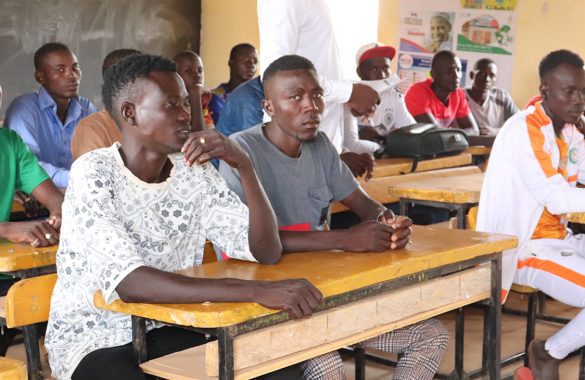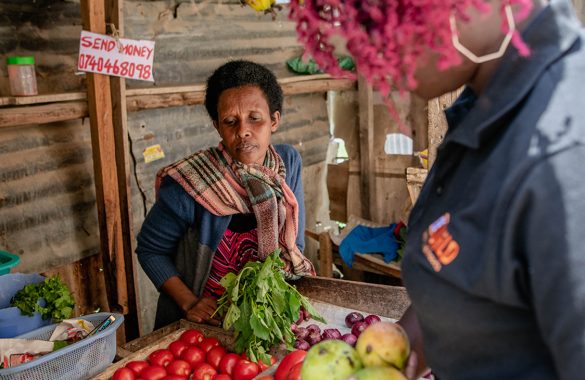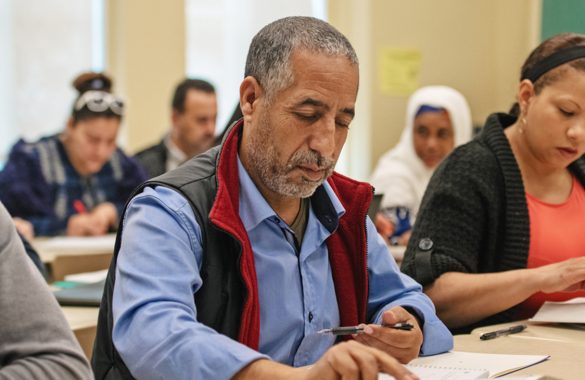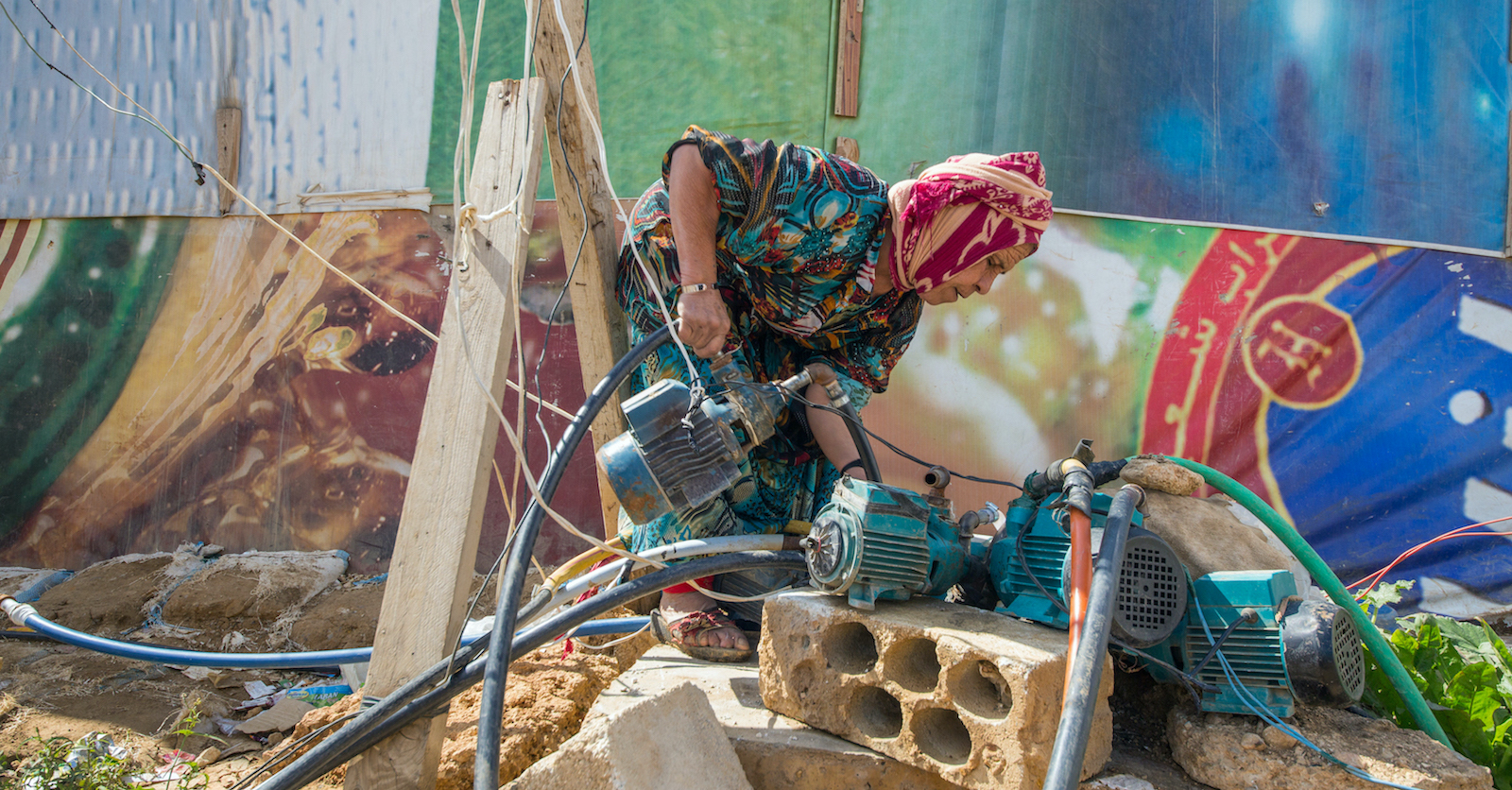
Twelve years after Syria’s civil war began, 5.5 million Syrians live in neighboring countries, many of whom have been displaced for a decade or more. Much of Syria remains devastated, and many refugees considering returning fear violence, persecution, and government retribution in the postwar period. In February 2023, the country’s ongoing humanitarian crisis was compounded by the 7.8 magnitude earthquake that hit southern Turkey and northwestern Syria, leaving even more people without basic shelter and public services. This has rekindled important questions over the fate of displaced Syrians and their prospects for returning home. Lebanon, a country of 4.5 million, now hosts more than one million Syrian refugees. Over the past three years, Lebanon’s economy has been ravaged by an economic crisis and inflation, and the Lebanese government has drawn criticism for taking steps to encourage Syrian repatriation when many in the international community believe conditions in the country remain unsuitable for return.
Absent in these discussions is the voice of Syrian refugees. Do they want to go back to Syria? If so, when and under what conditions? What factors predict the return of refugees? Researchers at the Immigration Policy Lab (IPL) conducted a representative survey of 3,000 Syrian refugees in Lebanon in 2019 to learn about their return intentions.
Between August and October 2019, IPL researchers carried out in-person survey interviews with more than 3,000 Syrian refugees across Lebanon. The team recruited a representative sample of Syrians in Lebanon, meaning the survey data enables the researchers to draw conclusions about the full population of Syrians in the country. In surveys, a head of household was asked a series of questions related to their return intentions, living conditions in Lebanon, conditions in their places of origin in Syria, and the locations of their family and friends.
Most Syrians want to return, but don’t think it’s realistic to do so soon
Most respondents said they anticipated returning someday, but only 5 percent of Syrians intend to return in the year following the interviews. When asked where they expect to be living in two years, the percentage of Syrians who said they expect to be living in Syria rose to 27 percent. When asked if they ever hope to return, more than 60 percent said yes. The research team looked at how these intentions varied across age, gender, education level, and where the respondent resided and found results were largely similar across groups. Younger and older respondents had similar answers across all outcomes. Women and men think similarly about return in the short term, although a slightly larger share of women said they intend to go back to Syria at some point in the future. More educated Syrians report higher intentions to return to Syria in the short and medium term and Syrians living in informal tent settlements in Lebanon were more likely to say they intend to return than those living in urban areas.
Roughly 60–70 percent of respondents said they rely on Syrians in Lebanon and in Syria to learn about conditions in Syria. This is followed by transnational media and social media, which approximately 20 percent said they use to learn about conditions in Syria. Official Syrian media was used by just over 10 percent of Syrians in Lebanon. Finally, UNHCR and NGO announcements were used by around 5 percent of Syrians to learn about conditions at home.
What influences the decision to return?
The research team analyzed whether people’s intentions to return were predicted by conditions in Lebanon, conditions in Syria, their costs of traveling to Syria, and their confidence in information about conditions in Syria. They supplemented this analysis with an experiment in order to isolate the causal effect of conditions in Syria and Lebanon on return intentions. They found:
- Local conditions in Syria—mainly safety, but also economic conditions, availability of public services, and personal networks—were the most important predictors of return intentions. The experiment results suggest that safety is the most powerful driver of return, with security in one’s hometown and nationwide increasing return intentions by 35 and 42 percentage points, respectively. Syrians who reported that many in their networks of family and friends stayed or returned to Syria were more likely to say they want to go back. Additionally, higher levels of Syrian government control in people’s town or city of origin was correlated with a decrease in Syrians’ intention to return.
- Conditions in Lebanon, such as socio-economic well-being and access to services, did not play a primary role in predicting return intentions. The researchers had expected that people who were worse off in Lebanon would be more likely to say they intend to move back to Syria. However, economic well-being, provision of services, family networks, social well-being, and the legal situation of Syrians were not correlated with higher return intentions.
- The research team developed an alternative framework to understand refugees’ decision-making about return: as refugees flee their homes to avoid violence, safety conditions in the home country may need to exceed a certain threshold before they consider returning. This threshold model implies that host-country conditions have little effect on return as long as safety concerns in the home country are not addressed. Only once safety concerns are met will people evaluate the potential trade-off between conditions in the home and host countries.
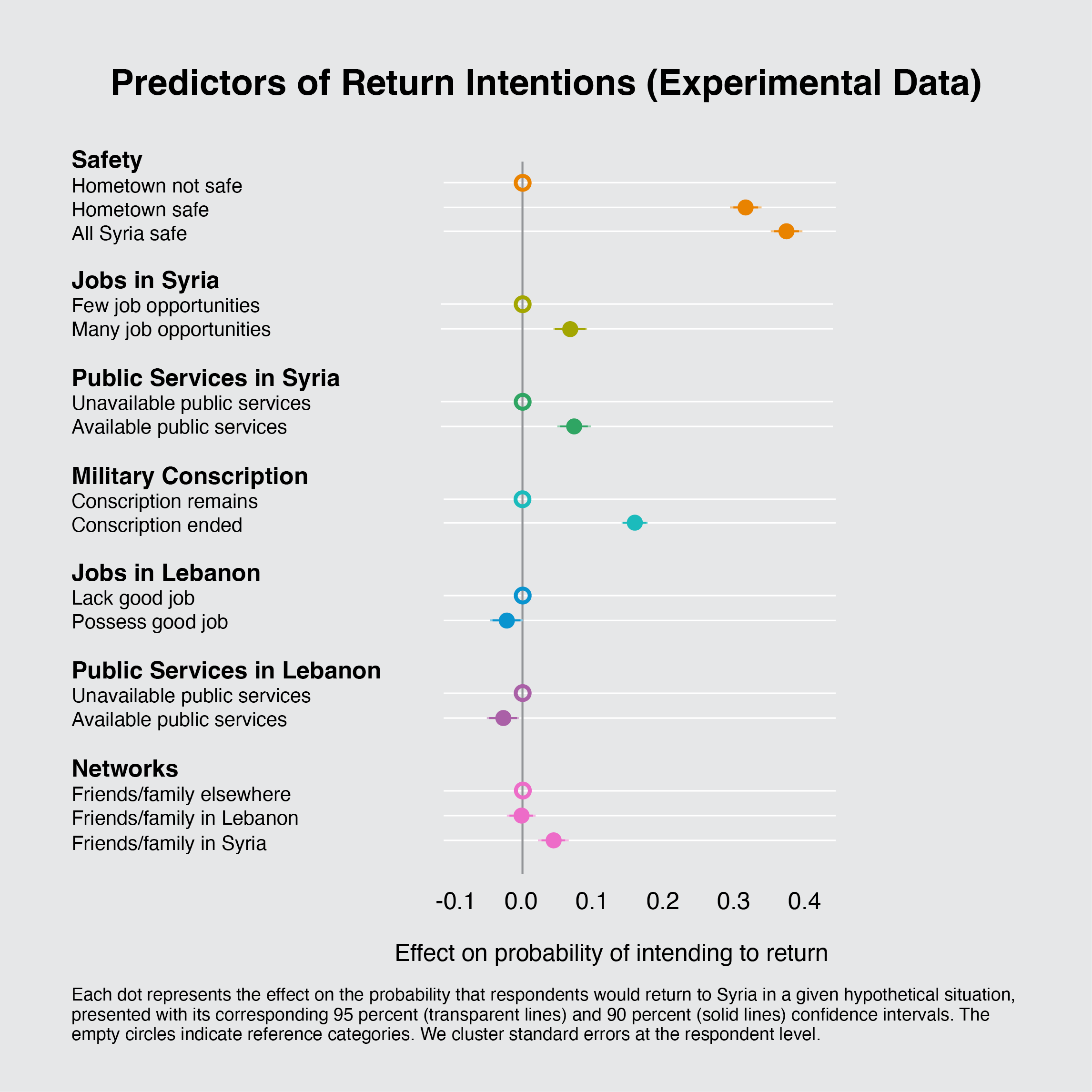
What are the prospects for Syrian refugees in Lebanon?
These findings suggest that even if the conditions of refugees in Lebanon become worse, they are unlikely to return to Syria. Efforts to push Syrian refugees out of the host country are unlikely to be effective as long as there is little change in the security situation in Syria. Even those facing significant hardship in Lebanon would not choose to return to Syria as long as conditions in their places of origin remain unsuitable. The results also show that although most Syrian refugees may eventually return, more than a third expect to remain in Lebanon, including some of those who wish that they could return. Many of those refugees live in very difficult situations, suffering from poverty, hostility, and formal restrictions on their mobility that need to be addressed. As such, it is critical that the humanitarian community continue to support refugees in Lebanon and other host countries to gain legal status, access to services, and labor-market opportunities. These ongoing efforts to improve refugees’ living conditions will require sustained funding from the international community in the years ahead.
LOCATION
Lebanon
RESEARCH QUESTION
What factors shape refugees’ decision to return home?
TEAM
Ala’ Alrababa’h
Daniel Masterson
Marine Casalis
Dominik Hangartner
Jeremy Weinstein
RESEARCH DESIGN
Panel Survey
KEY STAT
About a third of the Syrian refugees surveyed said they did not expect to ever return to Syria.
FUNDER
UK Foreign, Commonwealth & Development Office, awarded through Innovation for Poverty Action’s Peace & Recovery Program
The Swiss Federal Department of Foreign Affairs
The Swiss Network for International Studies
Leverhulme Trust
Consortium of the Wellcome Trust, the Riksbankens Jubileumsfond, and the Volkswagen Stiftung

